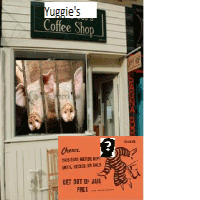I think that PP made things a bit unnecessarily co
Post# of 43068

My understanding is that the idea behind processor sales is that a prospective customer could provide their own feedstock, thereby eliminating one of the main costs for JBI. My understanding is that JBI has to buy high quality plastic at market prices, which makes it difficult for the process to be economically viable. But, if a customer can provide feedstock internally, voila, there is a sale.
What PP is saying is that if the input is worth more than the output from the process, that customer may just as well sell the waste plastic at market prices, and they would be ahead of the game. Forget about a return on investment. The only other cash flow would be the value of fuel produced. One would have to do the math..
But, I think I am restating PP's argument more simply.
I have a question... I thought that according to their permitting, JBI can only pyrolysise plastic that is destined for landfill. That seems to be at odds with having to buy plastic feedstock that has a high market value. So which is it?
Also, what was NYDEC's rationale for only allowing plastic that was destined for landfill? If the objective was making money, it should not matter. JBI's objective should be making money.
The whole initial concept behind JBI's massive profitability was supposed to be the ability to pyrolysise unwashed plastic, this is not longer true... but that doe snot necessarily lead to a requirement that the feedstock be destined for landfill.
 (0)
(0) (0)
(0)